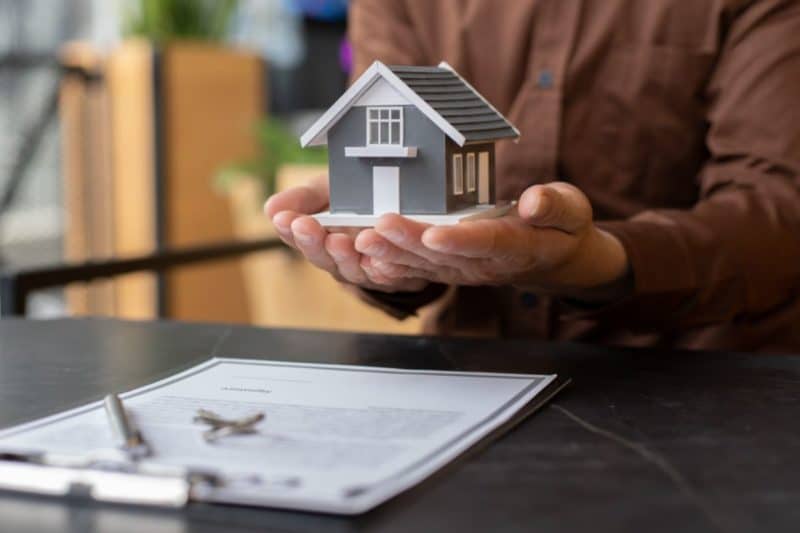An asset should be an item that has a value that helps boost your bottom line rather than creating expenses and regular costs. But is a house an asset? For anyone looking to get into real estate investment, properties can signify exceptional assets.
That is especially if you decide on a net lease, then you can watch the rent income arrive without worrying about the bills and maintenance.
The investment strategy that you decide on should help you capitalize on the appreciation and cash flow that would make a house a genuine asset.
In this guide, we will look at when a house can be considered an asset, why your home should not be considered an asset, and why your home should be considered a liability.
What's Ahead...
When A House Can Be Considered An Asset?
If you are thinking of renting out part of your home (also known as house hacking), it can help cover the cost of a mortgage. In that case, a house can have multiple units and you can rent out a few of them or use them as an Airbnb space.
That can eliminate those housing costs as you would have another form of income from the home. However, without that income stream, your home should not be considered an asset.
Why Your Home Should Not Be Considered An Asset?
While your house will have a tangible value and that value should appreciate over time, it is still not truly an asset. Not in the truest sense of the term anyway.
You are still living in the home and cannot realize any appreciation gains, certainly not while you still live in it. That situation may change if you envisage selling your house yet the costs of bills and maintenance still insist that the house be considered a liability.
The only means that a house can be considered an asset is if it makes money for you on your bottom line. One method is by realizing equity which is when you sell the house after living in it.
There is the appreciation that comes from selling the house for more than you paid for it but the compounding interest has to be worked in, which may eat into profits.
The value when you do sell a house also fails to take into account every single time you have spent money on the house during the time you have lived in it.
The overriding problem is that the appreciation is not wholly guaranteed and that issue can occur if you sell a house during a recession when house prices have dipped.
At that point, you can truly call the house a liability as you will struggle to find the value that you hoped for. For the vast majority of homeowners, they earn money through a job and then spend that money on liabilities.
You can almost certainly count a house as a liability even if you want to think of it as an asset.
Why A Home Should Be Considered A Liability?
It’s not so much that a house should be considered to be a liability, rather that it does not match the definition of an asset. While a real estate agent may insist that your house is certainly an asset, for it to meet that definition it has to put money into your pocket.
Unless you rent out your house, living in your house means paying for a mortgage, bills, and maintenance. By taking money out of your account, a house should be considered a liability.
This is even more important if you do not own your home outright yet and continue to pay a mortgage with the maintenance costs. In that case, it can remain on the balance sheet of the bank as an asset as it is bringing in money for them, your money.
That includes the bank interest that you pay every month which goes on top of the equity from the mortgage.
For the bank, your home will be making a tidy return and a steady stream of income and, even if you default, they get to keep the house with the money that you have paid them to date.
Is A House An Asset? Final Thoughts
A house can be an asset yet only if it brings in money, either through being partially rented out or invested in and then rented out to tenants.
If you are living in the house then it should be considered a liability as it is drawing away your money instead of bringing it in. Whether your home is considered an asset or a liability, it should not draw you away from home ownership.
Your home is there to be enjoyed, even if it does mean having to pay the bills, mortgage, and maintenance costs.
Frequently Asked Questions
What Are The Three Asset Classifications?
The three asset classifications are physical existence, usage, and convertibility. When an asset is classified as having physical existence it should be something tangible that you can measure, hold, and see like land, cash, or furniture.
There is also usage to consider which is what the asset is used for in its operating capacity such as its day-to-day operations or it could be vacant land as a non-operating asset.
Convertibility is concerned with how easy an asset is to turn into cash, typically within a year so you can count office supplies and pieces of furniture in that list.
What Are The Other Ways You Can Generate An Income From Your Home Without Renting It Out?
Instead of traveling to an office space for their job, many people convert part of their home into a co-working space. That should mean fewer transport costs, more affordable coffee, your own chair, and more time for yourself and your family which could prove invaluable.
You could also use the space outside your home to generate an income by allowing that space to become a parking space for others with a car.
Paul Martinez is the founder of BendingDestiny.com. He is an expert in the areas of finance, real estate, and eCommerce.
Join him on BendingDestiny.com to learn how to improve your financial life and excel in these areas. Before starting this blog, Paul built from scratch and managed two multi-million dollar companies. One in the real estate sector and one in the eCommerce sector.


